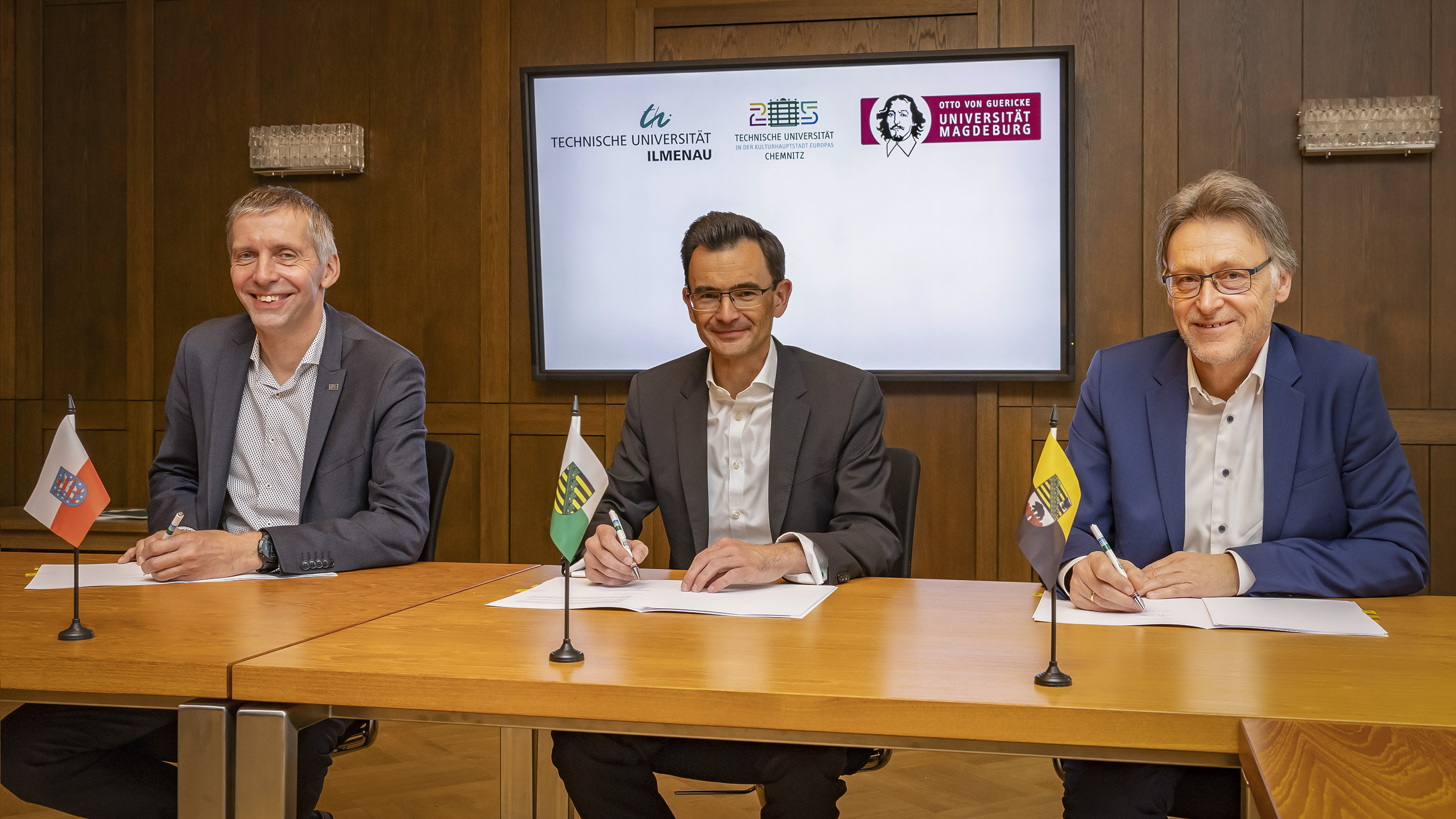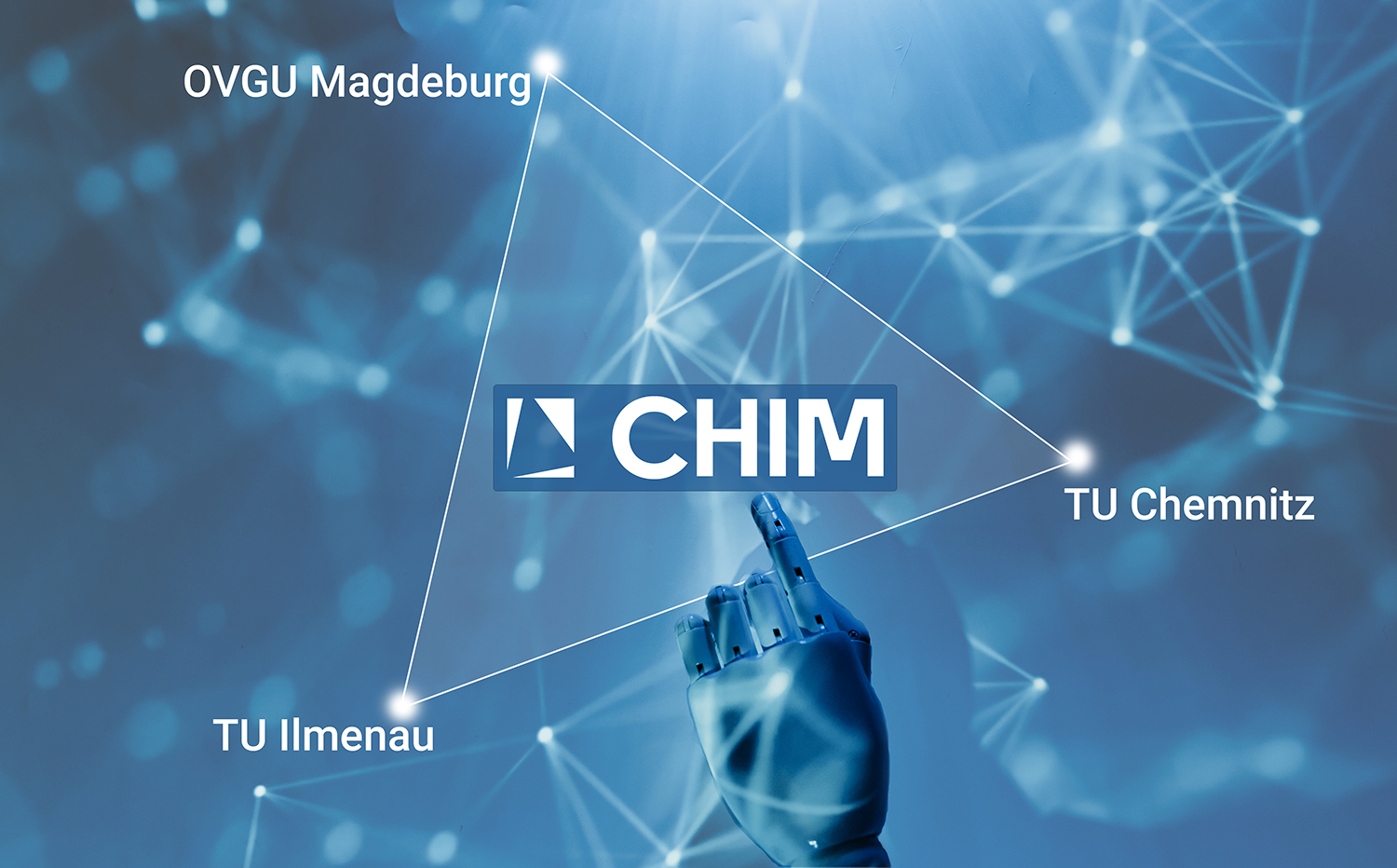As part of the Productive Teaming research initiative, members and interested parties are offered regular meetings and workshops to experience excellent scientific research at first hand. With this in mind, Professor Julia Arlinghaus from the Fraunhofer Institute for Factory Operation and Automation IFF and Professor Ayoub Al-Hamadi from Otto von Guericke University Magdeburg invited visitors to their research laboratories.
The first stop for the researchers from Chemnitz University of Technology, Ilmenau University of Technology and OVGU Magdeburg was a visit to the Fraunhofer IFF. In addition to the Elbfabrik, the highlight was the 360° projection screen of the Elbedome. With a diameter of 16 meters and a height of 4 meters, it is one of the largest mixed reality labs in the world and can display interactive 3D visualizations with the latest VR technologies in image and sound. Holographs create the impression of being in the middle of the projection. This form of presentation is particularly suitable for networking production systems and digitizing production processes in real time. This means that simulations and models can be created for every application or entire process chains can be mapped. Thanks to the projection of, for example, machines, complex systems, rooms or even cities, participants at the CHIM locations were able to immerse themselves in virtual (working) worlds and take part in an assembly process or a virtual traffic situation, for example. Just a stone’s throw away from the Elbedome, other use cases in the Elbfabrik gave visitors an understanding of the state of the art in science and technology in the field of digitalized value creation processes. Over 20 demonstrators showed technologies for intelligent and networked processes, including autonomous robots, smart picking and assembly stations as well as efficient parts processing and testing. The delegation then visited Prof. Al-Hamadi’s Department of Neuro-Information Technology at OVGU Magdeburg. Prof. Al-Hamadi and his colleagues presented the central research work in the field of human-robot collaboration using humanoid and industrial robots. For example, our scientists were able to experience how robots can assess the movements of dynamic objects in dense spaces, identify and track people and recognize interactions based on body poses and facial expressions. Prof. Al-Hamadi’s team is investigating these and other research areas in several projects, such as “3D-based human-robot collaboration with spatial situation analysis for ad-hoc assistance in dynamic goods transport processes” or “Implicit mobile human-robot communication for spatial action coordination with action-specific semantic environment modeling“.
(Authors: Marlies Facius/Max Bernhagen; Photos: Marlies Facius)


